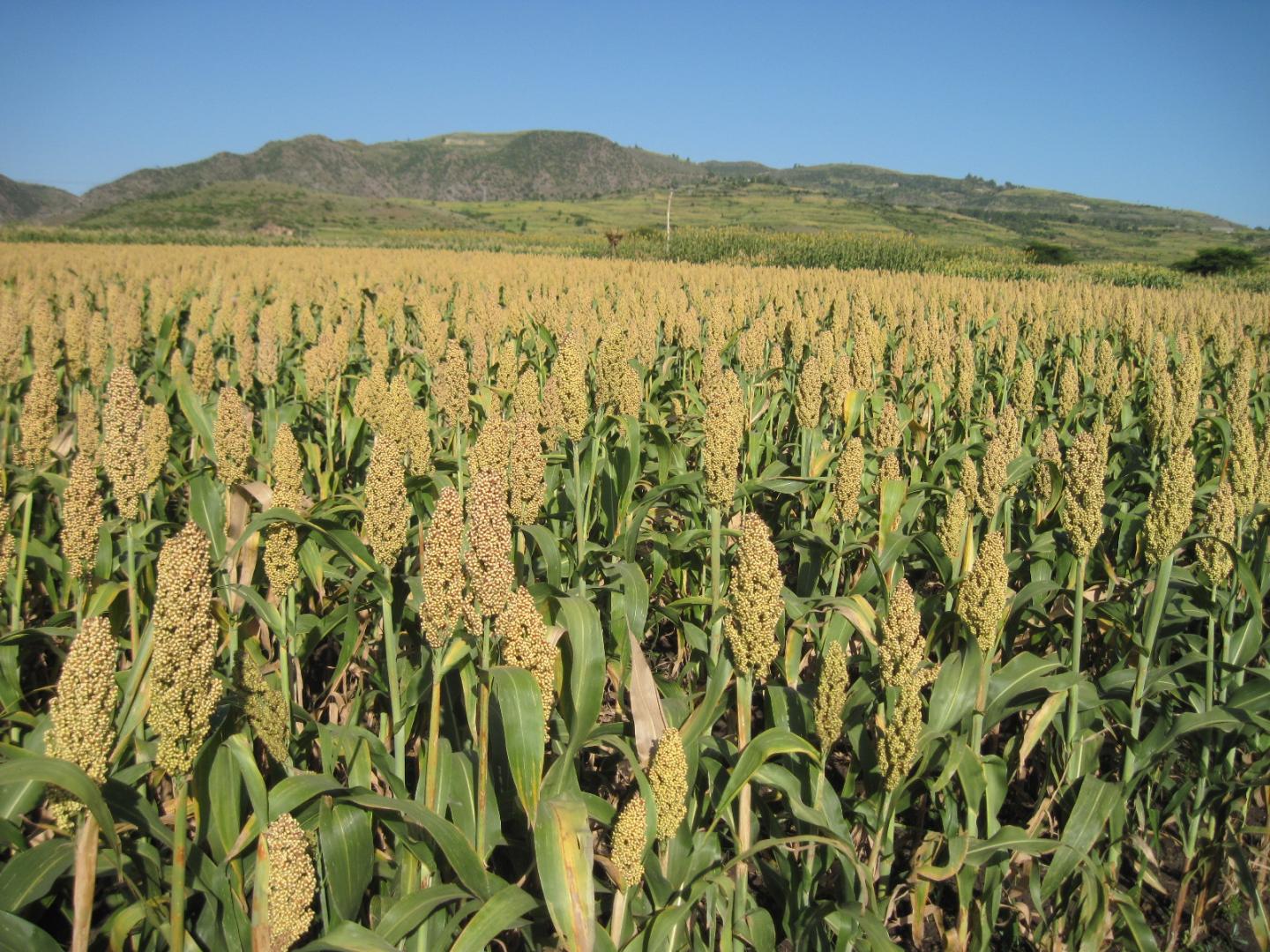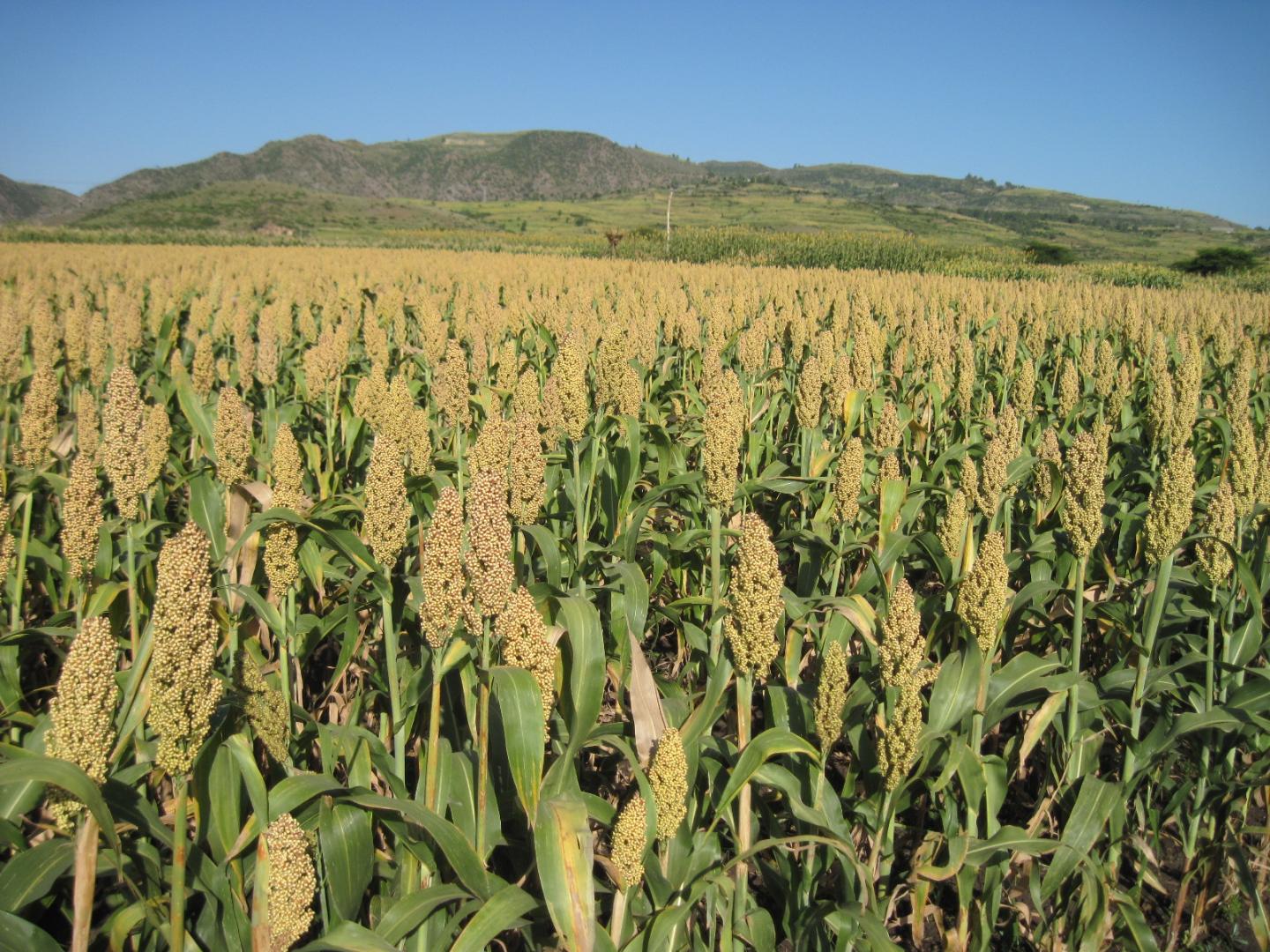
Credit: Taye Tessema / Ethiopian Institute of Agricultural Research (EIAR)
Sorghum is the fifth most important cereal in the world. In sub-Saharan Africa, many farmers rely on this grain for food and feed. But Striga, a parasitic weed, can have a devastating impact on crop yield. With an 8-million-dollar grant from the Bill & Melinda Gates Foundation, an international team will now explore the potential of soil microbes to offer crop protection. The Netherlands Institute of Ecology (NIOO-KNAW) is coordinating this 5-year project.
With the world population growing and environmental problems increasing, we're facing a huge challenge to secure our food production. How can we feed so many people in a sustainable way? Fortunately, nature has billions of potential helpers on offer. Microbes are often associated with disease and decay. But the vast majority supports us with essential services, ranging from purifying our water to breaking down toxins and protecting crops against diseases and pests.
Hunger and poverty
In Sub-Saharan Africa, sorghum is a major resource for food and feed. But its production is severely constrained by the parasitic plant Striga. Known as 'witch weed', this widespread, purple-flowered beauty feasts on the roots of sorghum and there isn't much smallholder farmers can do. Current research shows that the average yield loss of sorghum in Sub-Saharan Africa due to Striga can exceed 50%, aggravating poverty and hunger. But this could be about to change.
NIOO microbial ecologist and project coordinator Jos Raaijmakers is leading an effort to search for new sustainable solutions to this old but growing problem. Over the next five years, an African-American-European research team will do exactly that. The project funded by the Bill & Melinda Gates Foundation has been aptly named PROMISE, which stands for 'Promoting Root Microbes for Integrated Striga Eradication'.
"Our goal is to reduce the substantial damage to sorghum caused by Striga with the help of micro-organisms," explains Raaijmakers. "The PROMISE project will carry out the first step by mapping the potential of micro-organisms present in African soils. Our strength lies in an ecosystem approach, studying the 'teamwork' between microbes, plants, soil characteristics and management practices used by farmers. There is no 'silver bullet' or holy grail: the solution asks for an integrated strategy."
Training local researchers
The team consists of scientists from the Netherlands, Ethiopia and the United States. NIOO's research partners are the Ethiopian Institute of Agricultural Research (EIAR,Ethiopia), the company AgBiome and the University of California, Davis (United States), and the Westerdijk Fungal Biodiversity Institute and University of Amsterdam (Netherlands). Together, they will carry out research from lab to greenhouse and field.
Ethiopia was chosen as it is one of the countries where the impact of Striga on sorghum is most devastating. For the project to make a lasting contribution to solving the problems of these farmers, it will be vital to improve local research facilities, train local researchers and share knowledge.
So what might an actual solution look like? Raaijmakers: "We are thinking in more than one direction. For instance, we hope to protect sorghum plants with micro-organisms that suppress Striga infections as well as micro-organisms that can reduce the large number of Striga seeds present in the African soils." This will take time to develop. "We expect the first practical applications in ten years from now."
###
For more about the PROMISE project please visit: http://www.promise.nioo.knaw.nl
With more than 300 staff members and students, NIOO is one of the largest research institutes of the Royal Netherlands Academy of Arts and Sciences (KNAW). The institute specialises in water and land ecology. As of 2011, the institute is located in an innovative and sustainable research building in Wageningen, the Netherlands. NIOO has an impressive research history that stretches back 60 years and spans the entire country, and beyond.
Media Contact
Froukje Rienks
[email protected]
31-610-487-481
@niooknaw
http://www.nioo.knaw.nl
############
Story Source: Materials provided by Scienmag





